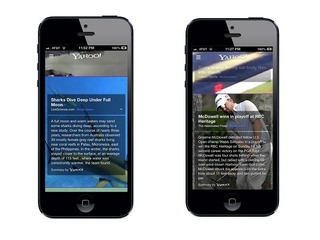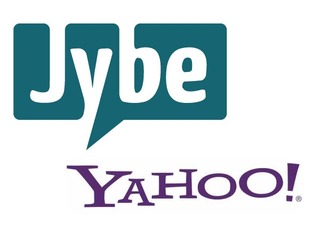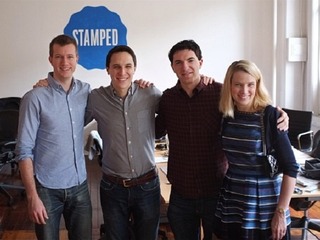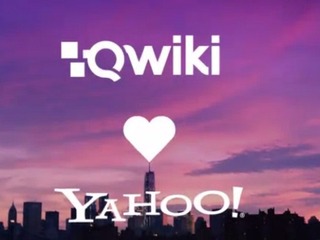
Marissa Mayer makes 25th acquisition in LookFlow
Image recognition company's engineers and tech will be used to improve Flickr

Since taking over them reigns of Yahoo last July, CEO Marissa Mayer seems to have made it her mission to acquire all of the tech talent she can find. And now the company has reached a milestone of sorts, buying its 25th startup in just under a year.
Its latest purchase is enhanced image recognition company LookFlow, who announced the acquisition on its homepage on Wednesday.
Terms of the deal were not disclosed, but the company revealed that it will be joining the team at image hosting and video hosting site Flickr.
"We built LookFlow as an entirely new way to explore images you love — combining delightful user experiences with the latest advances in machine learning," the LookFlow team wrote. "Flickr is the largest collection of images we love. They share our passion for creating phenomenal experiences & technology to help you discover those images."
A Yahoo spokesperson gave VatorNews a few more details about the acquisition, revealing that Yahoo will be "bringing five talented engineers and the technology they built" over to work at the Flickr headquarters in San Francisco.
In addition to their work on Flickr, LookFlow also said that it would be "helping Yahoo build a new deep learning group," in which it is already attempting to recruit employees who "want to help solve big problems."
What this group will be, and what it will entail, is unknown right now.
"LookFlow will help us build a new deep learning group, but we aren't going to discuss specifics at this time," the Yahoo spokesperson said.
Flickr updates
Mayer has made it another one of her priorities to revitalize the service. In fact, in May, the site was given a giant overhaul to, in Mayer's words, "make it awesome."
That meant giving it a new look, more space and putting it on more devices.
It was given a new homepage and photostream, all of its photos were made to be full resolution and it was given an Android app.
Perhaps, most importantly, though, on top of the new design, and the new platform, each user was given one terabyte of space.
At the time Mayer said that if you took every picture ever taken in the history of the world, it would only take up one-tenth of a single terabyte.
Its iOS app has also been getting updates recently, first with new filters and editing tools in August, and then auto upload, and auto straightening, earlier this month.
Why overhaul Flickr
The updating of Flickr would seem to have two goals.
First, of course, Mayer wants Flickr to be, as she said, awesome because its a Yahoo product and it should be something that people want to use.
But secondly, and I think more importantly, it is a sign to Tumblr users that they have nothing to fear.
When it became clear that Yahoo was interested in buying Tumblr, the Internet seemed to have one collective thought: please do not let this become another Flickr. That was because Flickr, which was bought by Yahoo in 2005, went from being a hip image hosting and video hosting website to one that was abandonded, and largely forgotten by the Internet community.
Yahoo did officially buy Tumblr for $1.1 billion in May, and the thought scared users so much that thousands feld to other services just fearing what might happen.
So I really believe that Mayer is putting so much effort into Flickr as a way of telling Tumblr users, as well as those who use any other product Yahoo might buy in the future, that the company does care about its products now. They will not turn into another Flickr.
Yahoo's other acquistions
As I said earlier, this is Yahoo's 25th acquisition under Mayer's leadership. Here are the other 24:
The first one was Stamped, the Justin Bieber-backed mobile app that lets users “stamp” and share their favorite restaurants, movies, books, and music, which was purchased in October of 2012; and OnTheAir, a video chat service that can be used for casual hangouts or to organize largish webinars.
In January, Yahoo bought social news start-up Snip.it In February, Yahoo purchased location discovery app Alike, and then Yahoo acqu-hired the team at personalized recommendation service Jybe, giving the company both a location service, and a team with knowledge in personalized recommendations.
In March, the company bought news summarizer Summly and then it scooped up Astrid, a productivity app which helps people manage lists.
The company then bought real-time polling tool GoPollGo and frequent flier search startup MileWise on the same day, before also purchasing PlayerScale, which makes software infrastructure for cross-platform gaming.
In May, it picked up game developer Loki Studios and purchased Tumblr for $1.1 billion. The company then scooped up free conference call service Rondee in June
July was a particularly busy month for Yahoo: it picked up its 20th purchase in commerce app platform Lexity, and it also acquired fantasy sports app Bignoggin; rich media service Qwiki; email and address book management app Xobni; advanced mobile ad technology startup Admovate; and social data analytics platform Ztelic.
Yahoo then bought social media web browser startup Rockmelt and Image recognition service IQ Engines in August, and sports app developer Hitpost in a purchase earlier this month.
Its most recent purchase before this was URL-shortening service Bread.
(Image source: https://print-tech.com)
Related Companies, Investors, and Entrepreneurs
Snip.it
Startup/Business
Joined Vator on
Snip.it collects the best of the Web. It enables consumers to easily “snip” content - videos, images, and articles - and share their opinions with the world.
Alike, Inc.
Startup/Business
Joined Vator on
alike enables you to use the places you like to find new places you’ll love.
Keywords suck. First, they are too simplistic. When you search for a coffee shop a keyword based engine won’t know if you wanted the best java in town or a nearby place to crank out some emails. Second, they are too vague. Google returns 12,938 results for coffee shops in San Francisco. And finally, they are generic – with rankings based on popularity/SEO rather than relevance. None of the current options let you organize results to find what you really want.
The alike engine takes search beyond the keyword to solve this problem. Using alike anyone can simply enter the name of something they enjoy, alike will identify this ‘entity’, and then alike will provide the user with similar ‘entities’ that they will love.
The alike search engine has developed a semantic understanding of many different entities (places, products, people) and their attributes (locations, cost, reviews, preferences).
Xobni Corporation
Startup/Business
Joined Vator on
Xobni offers a new way to organize and search your Outlook email. Xobni creates profiles for each person that emails you. These profiles contain relationship statistics, contact information, social connections, threaded conversations, and shared attachments. Our users tell us that Xobni makes your inbox work the way your mind does.
Marissa Mayer
Joined Vator on
Related News


Astrid to close its doors for good on August 5th

Yahoo buys Summly to take another step toward mobile

Yahoo buys personalized recommendation service Jybe

Not slowing down yet: Yahoo scoops up Rondee

Yahoo's latest acquistion: sports app developer Hitpost

Astrid gets acquired by Yahoo

Marissa Mayer makes first acquisition as CEO

Yahoo upgrades fantasy sports by acquiring Bignoggin

Yahoo purchases Alike to make good on mobile promise

Yahoo makes another acqui-hire: team from OnTheAir






